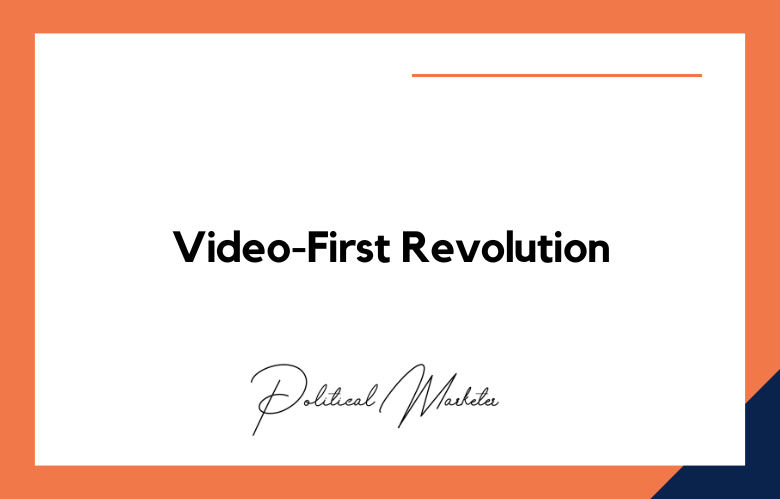In the digital age, political campaigns are no longer limited to traditional modes of communication such as mail, telephone calls, and rallies. Political campaigns use various digital platforms such as social media, email, and messaging apps to reach potential voters.
However, with the ease of access to these platforms comes the challenge of securing sensitive information that political parties need to keep confidential.
Digital Rights Management (DRM) can help political parties protect their digital assets and prevent them from falling into the wrong hands. We explore the importance of DRM for political parties and how it can benefit their campaigns.
What is Digital Rights Management (DRM)?
To put it simply, DRM refers to a set of technical systems and policies designed to control digital content distribution, copying, and use.
These policies help protect copyrighted content from unauthorized access, copying, and distribution.
DRM technologies are commonly used by music and video publishers to control the usage of their content and to prevent piracy. The same principle applies to political party data as well.
DRM technology allows digital content owners to control how consumers use their content. It provides a layer of security that limits access to digital content, preventing unauthorized distribution or use of it.
DRM technology is widely used in the entertainment industry to protect musical, video, and other digital content from piracy, but its application extends beyond this.
Why is DRM essential for Political Parties?
Digitalization plays a significant role in modern political campaigning. Political parties gather, analyze, and use digital data to create targeted messaging, track voting trends, and persuade voters.
With the proliferation of data breaches and e-crimes, campaigns and political events could be severely impacted.
For instance, a hacker could gain unauthorized access to a party’s donor list and use the information to target these donors with phony emails. DRM assures that political parties can protect their sensitive data from being compromised.
Through DRM, parties can encrypt their data, protect their servers and websites with secure keys, and limit access to the information to authorized individuals only.
The Importance of DRM for Political Parties
Political campaigns require much data and information to help parties make informed decisions about their movements.
This includes voter lists, donor information, messaging plans, and candidate profiles. All this information must be kept confidential so political parties can maintain a competitive edge.
DRM can help keep this information secure by limiting access only to authorized individuals and devices. The data that political parties collect and use is valuable information that helps to steer their campaigns and fundraising strategies.
The threat of security breaches and illegal access to this data is a significant concern for political parties.
This data can be used to gain a competitive advantage during an election cycle, so its protection is crucial. The fallout from a data breach that exposes sensitive information can be a public relations nightmare for any political party.
Implementing DRM for Political Parties
Implementing DRM for political parties requires careful planning and resources. A DRM system must be tailored to the political party’s needs and consider the party’s different processes and methods to manage its data.
DRM experts can help political parties implement and manage their DRM systems to ensure they continue to operate effectively. Using this information, political parties will develop a comprehensive security strategy that includes deploying DRM technologies.
Regular testing of the technologies is also critical to ensure any vulnerabilities or potential attack vectors are detected and addressed.
Understanding Digital Rights Management (DRM) for Political Party
Digital Rights Management (DRM) is becoming an integral part of political campaigns, especially in the digital age of electioneering.
Digital media has transformed how political parties reach voters and present their policies. In this era, digital rights management (DRM) is a tool for campaigns to protect their digital assets.
It’s all about securing digital media from unauthorized access and usage. The information on political parties’ websites and social media accounts is their intellectual property, and protecting them is crucial to their electoral strategies.
I will delve deep into digital rights management, how it works, and its importance to political campaigns.
Preventing Data Leakage and Securing Information
Political parties such as donors, voters, and other sensitive data sets can use DRM technologies to protect confidential information.
DRM can help prevent data leakage and unauthorized access by imposing strict access controls governing who can access the data and how long that access lasts.
A multi-tiered data protection strategy, such as incorporating encryption techniques or firewalls, can further secure the data from hackers’ access.
Benefits of DRM for Political Campaigns
Securing Campaign Content and Intellectual Property
Political campaigns invest millions of dollars in creating digital content, including videos, audio, campaign slogans, and graphics.
Without proper DRM protection, anyone can use and share this content, resulting in a significant loss of investment and reputation.
DRM secures digital content during and after the campaign, allowing only authorized parties to use them as intended. This, in turn, protects intellectual property owned by the campaign, ensuring that its message remains intact for the duration of the campaign.
Controlling and Managing Content Distribution
DRM allows campaigns to manage and control the distribution of their digital content.
This protects the campaign from unsolicited and false messages that might go viral online. With the right DRM strategy, campaigns can monitor the usage of their digital content and prevent unauthorized sharing or piracy.
This helps maintain the integrity of the campaign’s message and ensures that the intended audience receives the message.
Analytics and Insights
DRM not only secures digital content, but it also provides insights and analytics into how the content is being used.
This data can be used to make informed decisions about optimizing the content’s performance, effectiveness, and distribution.
Understanding how digital content is used can help tailor future campaigns, messages, and strategies to reach the target audience better.
Building Trust with the Audience
DRM policies help convey a sense of trust to audiences, especially in political campaigns. Audiences are more likely to support campaigns that are transparent and honest with them.
By securing their digital content, campaigns can prevent any unauthorized usage or manipulation of the message, which helps to build trust with the audience.
Complying with Regulations and Laws
DRM ensures compliance with regulations that political campaigns must follow. Campaigns are legally obligated to ensure their project messages are truthful and comply with data protection requirements.
DRM ensures that the campaign’s digital content complies with these legal requirements and prevents the spread of any false or misleading messages.
Conclusion:
In conclusion, DRM is an essential technology for any political party that deals with sensitive digital assets.
As campaigns become increasingly dependent on digital platforms, political parties must take measures to ensure that their campaigns’ critical data and information are kept confidential.
DRM provides a secure and cost-effective way of managing digital assets while maximizing the effectiveness of campaigns.
Political parties should be proactive in implementing DRM systems to help safeguard their digital assets.
DRM experts can assist with implementing effective DRM systems that can help political campaigns run smoothly and securely, providing a competitive edge.
Using DRM technology, political parties can keep their campaigns on track while protecting their most valuable digital assets.
Call: +91 9848321284
Email: [email protected]










